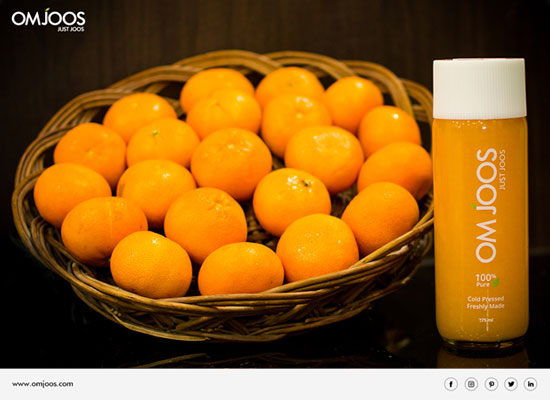Image Source:unsplash
Seasonal eating is the kind of eating that can easily get anybody on-board with a healthier lifestyle. As the seasons change, the variety and choices of foods also change. This is the time when one can try and experiment with different kinds of dishes and recipes. Although the idea of seasonal eating has been altered with time. From strawberries in winters and oranges in summers. You name it and it’s there in your nearest super-markets after traveling a whole lot of distance.
The Importance of Seasonal Eating
We all remember waiting months for our favorite fruit or vegetable to arrive so we could indulge in its naturally satisfying flavor. For example, mango is a fruit that’s craved by everyone in the country and, as soon as the summer arrives, you can count on seeing these ripe, juicy, and fresh fruits everywhere.
Going back in time, our ancestors were nomadic people who were completely dependent on seasonally available foods. They were devoid of the off-seasonal availability and long preserved food. They were single-handedly dependent on the crops and food products that were available at that time. Funnily enough, they were unintentionally following a correct seasonal diet.
Changing Food Habits
Unlike our ancestors, we are living in a time when we can have whatever we wish to eat whenever we want. Technology and transportation has made it possible for us to have kiwis and blueberries from across the seas all year long. Despite this, it’s still very important to know when to eat your favorite foods so you can get the most nutrition in the form of vitamins and minerals.
Nature knows best; it’s scheduled everything to perfection. If you follow seasonal cycles and eat seasonal fruits and vegetables, getting and staying healthy will be very easy. Apart from nature, even our body understands what we need. After all, you won’t crave hot soup on a hot day or ask for watermelon in January. Each produce item comes during its season to support you during that time. For example, cucumbers and melons are mostly found in the summer due to its cooling properties that support survival in scorching heat. Citrus fruits like oranges, on the other hand, fulfill the need for vitamin C in the winter.

The Many Benefits of Eating What’s in Season
There are many seasonal fruits and vegetables that are quite popular for their health benefits. The thing is, they’re at their best when it’s harvesting season. In other words, every change in the season is a new chance to explore and enjoy new fruits and vegetables along with new dishes and recipes. With new experiences and flavors, seasonal eating will do wonders for your health and body. Let’s take a look at some of the many benefits you can encounter:
1. Better Taste
Seasonal fruits and vegetables taste better when they are plucked fresh from trees, vines, or the ground. Not only are they perfectly ripe and full of sweetness, but also nutrition.

2. Lower Amounts of Chemicals and Preservatives
Non-seasonal foods are kept in deep freezers to avoid rot. Many times preserving agents and wax are also used on them post-harvesting to keep them edible for longer periods of time. Unfortunately, these chemicals and preservation methods kill the taste and nutrition of fruits and vegetables. Additionally, they are also harvested prematurely to protect them from spoilage, meaning that they have to store and later ripen them chemically.
3. No Overseas Contamination
There are many areas around the world that do not regulate the use of pesticides and sprays. Unlike countries that ban chemical use on crops, certain ones are more relaxed and allow it. The worst part is that you don’t always know where your food is being imported from.

4. More Nutrition for Your Body
In the winter, we are provided with all things citrus, which is particularly high in vitamin C that is very important in preventing infections like colds and the flu. Winter vegetables also offer comfort and are perfect for hot meals, healthy soups, casseroles, and other warming meals. Summer foods like watermelon and melon provide us with extra beta-carotenes and other carotenoids that protect us against sun damage. They even provide use with more sweetness that gives us the energy we need in the summer as the sun drains us away.

5. Cheaper to Purchase
Have you ever been to your nearest market and found that the price of strawberries or apples is exceptionally higher than before? That may be because the fruit is now out of season and you’re getting a cold-stored batch with higher prices. During harvesting season, the prices are low because there’s high availability. That’s why it’s always wiser to purchase produce that’s in season.
6. Better for the Environment

Eating seasonally reduces the demand for out of season produce, which further supports local produce and local farming in your area. This leads to less transportation, less refrigeration, less hot houses, and overall less harm to the environment
Final Thoughts
Enlighten yourself about seasonal vegetables and fruits available in your area and follow their yearly pattern. Follow food bloggers and update yourself every few months on what’s best during that time so you can eat something that’s tastier and healthier than other times. Enjoy!
FAQs
1. What is a seasonal eating guide and why does it matter?
A seasonal eating guide helps you choose foods that naturally grow in a particular season. Eating seasonal produce supports better nutrition, flavour, and sustainability while often being more affordable.
2. How can I eat with the seasons in India?
To eat with the seasons, include fresh produce like mangoes in summer, root vegetables in winter, and leafy greens in spring. Follow local farmer markets or a seasonality of vegetables chart to make informed choices.
3. What are seasonal foods and how are they different from regular produce?
Seasonal foods are fruits and vegetables harvested at their peak ripeness in their natural growing season. Unlike cold-storage items, they are fresher, tastier, and packed with more nutrients.
4. Why is understanding the seasonality of vegetables important?
Knowing the seasonality of vegetables ensures you get maximum nutrition and taste. For example, spinach is best in winter, while gourds thrive in the monsoon. Seasonal produce is less likely to be chemically ripened or artificially stored.
5. What are some lesser-known seasonal food facts?
-
Seasonal produce requires fewer preservatives.
-
It often aligns with your body’s seasonal needs (e.g. hydrating fruits in summer).
-
Eating seasonally can reduce your carbon footprint and support local farmers.
6. Where can I find a reliable seasonal eating guide for Indian vegetables?
You can check agriculture department charts or nutritionist-backed platforms. A good seasonal eating guide includes fruits, vegetables, and even spices that are in season across India’s diverse regions.
Read More:

